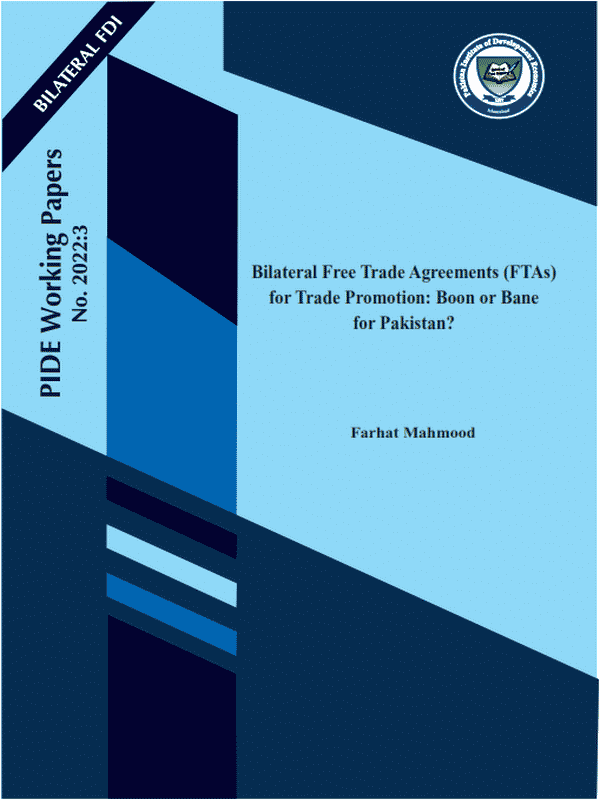
Pakistan Institute of Development Economics
- Home
Our Portals
MenuMenuMenuMenuMenuMenuMenu - ResearchMenuMenuMenuMenuMenuMenuMenu
- Discourse
- The PDR
- Our Researchers
- Academics
- Degree Verification
- Thesis Portal
- Our Portals
Bilateral Free Trade Agreements (FTAs) for Trade Promotion: Boon or Bane for Pakistan?
Opening international trade has become a norm in policy design worldwide to promote long-term economic growth. Until 2000, multilateral trade negotiation was governed by the General Agreement of Tariff and Trade (GATTs) and its successors, the World Trade Organisation (WTO), which was the core mechanism in reducing crossborder trade barriers, especially those in terms of tariffs. Since the new millennium, the mechanism to open up international trade has changed. The role of WTO has gradually become less significant, and it has been replaced by the proliferation of preferential trade agreements, widely known as the free trade agreements (FTAs). FTAs have grown at a phenomenal rate between 2000 and 2021, reaching 271 agreements by 2021 from 51 agreements in 2000 (ADB, 2014). Halting speed of WTO negotiations, including the failure of the Seattle Ministerial meeting of WTO, popularised preferential trade agreements. Many countries joined such agreements due to political factors to enhance cross-border cooperation, increase regional security, and resist the domination of big powers in world trade.
South Asia has been considered the least integrated region globally despite attempting to liberalise its trade through numerous trade agreements. It has long been argued that the limited success of South Asia to liberalise regional trade was due to a lack of adequate attention to improving its main trade facilitation measures. Like elsewhere, several attempts were initiated in Asia to boost South Asian economic integration through various free trade agreements (FTAs). Even though South Asia is relatively a latecomer in the race of maximising FTAs, its catching-up speed is phenomenal. Among South Asian countries, Pakistan stands out as an example. The number of FTAs signed and/or under negotiation by Pakistan increased from none to 32 agreements in 2021.



